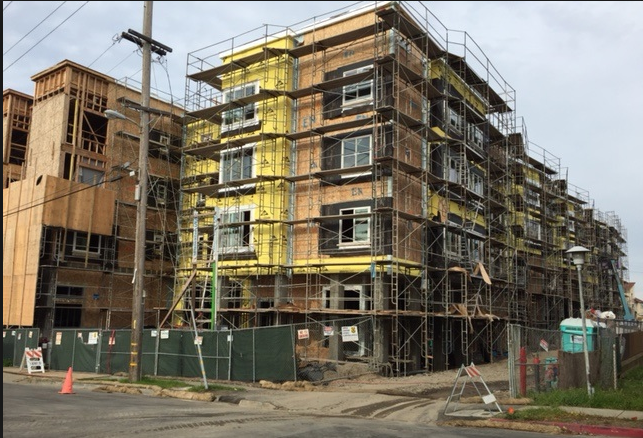
Montgomery St. and Skyline of Downtown areas of San Francisco, CA. (Photo: Randy Andy/ Shutterstock)
SF Housing Finance Authority Drops $20 Billion Bond Effort
Taxpayers win one, for once
By Thomas Buckley, August 14, 2024 4:52 pm
The Bay Area Housing Finance Authority (BAHFA) today dropped its campaign to pass a $20 billion so-called affordable housing bond.
Facing the almost certain loss at the polls, the BAHFA board met in closed session and unanimously decided that – on the last day possible – it would not place the bond on November’s ballot.
“The BAHFA Board’s decision to withdraw the affordable housing bond measure from this November’s ballot is not one that was taken lightly,” the board said in a statement after the meeting. “The Bay Area’s housing affordability crisis has been decades in the making and is far too big for any one city or county to solve on its own. This is the reason the state Legislature established BAHFA. A robust source of funding for safe and affordable housing across our diverse, nine-county region is essential to the Bay Area’s economic and environmental health and to its residents’ quality of life.”
BAHFA was created in 2019 after state law allowed such new spending districts be created and it appears it was created by the Metropolitan Transportation Commission and the Association of Bay Area Governments (MTC and ASSBAG) specifically to make this bond measure possible.
Even still, BAHFA’s statement does not quite ring true.
First, BAHFA’s own polling showed the bond was getting about 54%, not enough to pass, especially if a parallel proposition – Proposition 5 – fails to pass. That prop – which drops the threshold to pass a local housing and/or infrastructure bond from two-thirds to, surprise surprise, 55% – is on the ropes itself.
Interestingly, Prop. 5 yesterday had a good day in court, allowing some of its misleading language to go forward – but still it seems not good enough for the Bay Area bond.
The Bay Area bond, called Regional Measure 4, would have raised $20 billion dollars to add new affordable housing and preserve existing affordable housing. It is estimated that 90,000 such units shall be built/retained.
Opponents of the bond – which would have at least $300 per year per median-priced home to the tax bill – were thrilled with the decision.
Said Gus Mattammal, the president of the anti-RM4 group, “This decision is a win for Bay Area taxpayers, and a win for affordable housing. To address housing affordability in a meaningful way, we have to address root causes, not soak taxpayers for billions of dollars at a time using bonds that would waste two thirds of the revenue on interest and overhead while barely making a dent in the issue.”
The bond – and its potential for passage – was brought into serious disrepute by that same group, which noted the annual payback would be over $910 million dollars, as opposed to the measure’s promised $670 million each year.
Oddly enough, much of the current ballot language for Prop 5 will be allowed to proceed, making BAHFA’s choice even odder. But local word is that BAHFA has only about $8 million to spend to pass bonds, not enough the pollsters told them to overcome the current deficit.
Spend it on something that has a chance, is the common wisdom.
While it is legal for public agencies to spend taxpayer money polling and focus grouping and such for bond measure that will cost the taxpayer money, from an ethical standpoint it fails the smell test.
At least this time the smell was so bad it was dropped.
- Benefit Fraud Problems and Solutions - November 7, 2024
- A Little Exit Poll - November 5, 2024
- Tomorrow’s Headlines Today! - November 5, 2024





Some rare good news —– which is great.
If only there were people who build houses and sell them to the public without government bonds. Maybe someday such a profession will be invented. Until then we can only hope.
Yes, CW, imagine such common sense —- and freedom.
But from what I can tell, developers were co-opted by government at least two decades ago. Most realized they were going to be regulated and delayed into non-existence by govt entities and thus they weren’t going to be able to build anything or make any money unless it was govt-subsidized “affordable housing” & etc.
Is this also what you have seen?